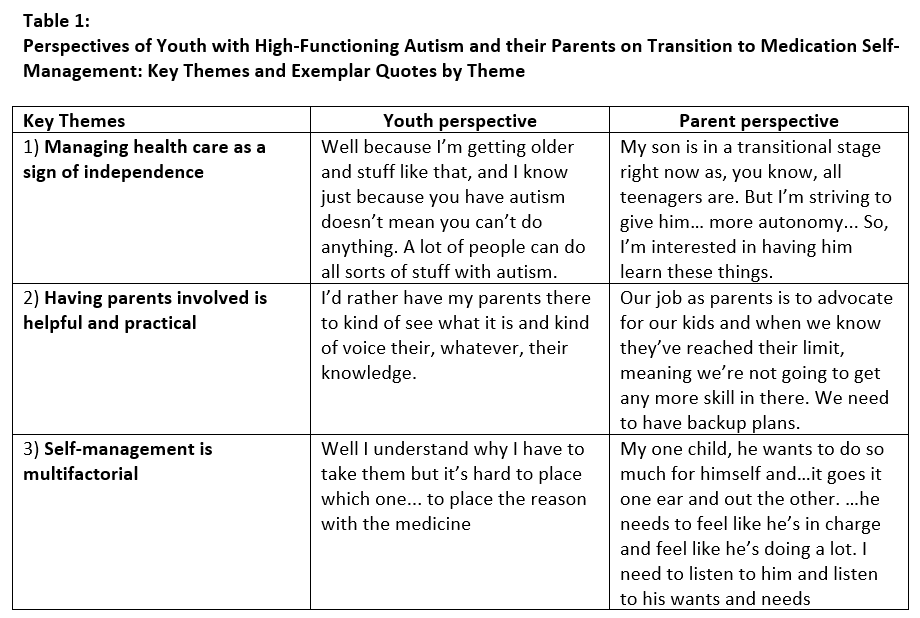Christensen J, Hetherington S, Welch T, Silverman L, Aldrich J, Hyman SL, Harris DL, Shone LP
Presented at the 2019 Pediatric Academic Societies Annual Meeting.
Background: Transition to medication self-management challenges youth with high-functioning ASD and their parents. Little is known about what youth already do to manage their medications, what skills they are willing/able to learn, or how perspectives of youth and their caregivers compare/contrast.
Objective: Qualitative study of perspectives of youth with ASD and their parents about healthcare transition and medication self-management as part of a larger clinical trial planning grant.
Methods: Separate focus groups with English-speaking 14-16 yr-olds with ASD and their parents in Rochester NY. Semi-structured discussion guides included the transition process, barriers and opportunities, and perceptions about medication use and self-management. One-hour groups were recorded and transcribed for inductive content analyses. Within-group coding was performed by 3 independent coders using Atlas.ti; the unit of analysis was chunks of text representing respondents' complete thoughts. Consensus process was used to group codes into themes and identify complementary/contradictory perspectives within/between groups.
Results: 12 youth with ASD and 15 parents participated. All were non-Hispanic and Caucasian. Most youth were male (75%); most parents were female (73%). Common perspectives among youth with ASD included: 1) self-management of health care and medications as a sign of independence and worthy goal; 2) parent involvement as practical and helpful; and 3) engagement in self-management as multifactorial. Parents felt their children should have information and a voice in medication self-management and wanted to empower them, yet acknowledged that actually doing this was functionally and emotionally complex. Youth and parents shared a sense of push/pull around autonomy. Parents and youth alike valued the goal and importance of independence, yet similarly valued the partnership of parent involvement in managing medications for youth with ASD (Table 1).
Conclusion: Our findings highlight the push-pull, shared by youth and parents alike, about when, how, and how much parent involvement is desired, necessary, and appropriate in medication management among transition-age youth with ASD. Understanding these factors may inform the approach to clinical intervention aimed at transition to medication self-management for individuals with ASD and their parents.

Last Updated
10/08/2021
Source
American Academy of Pediatrics